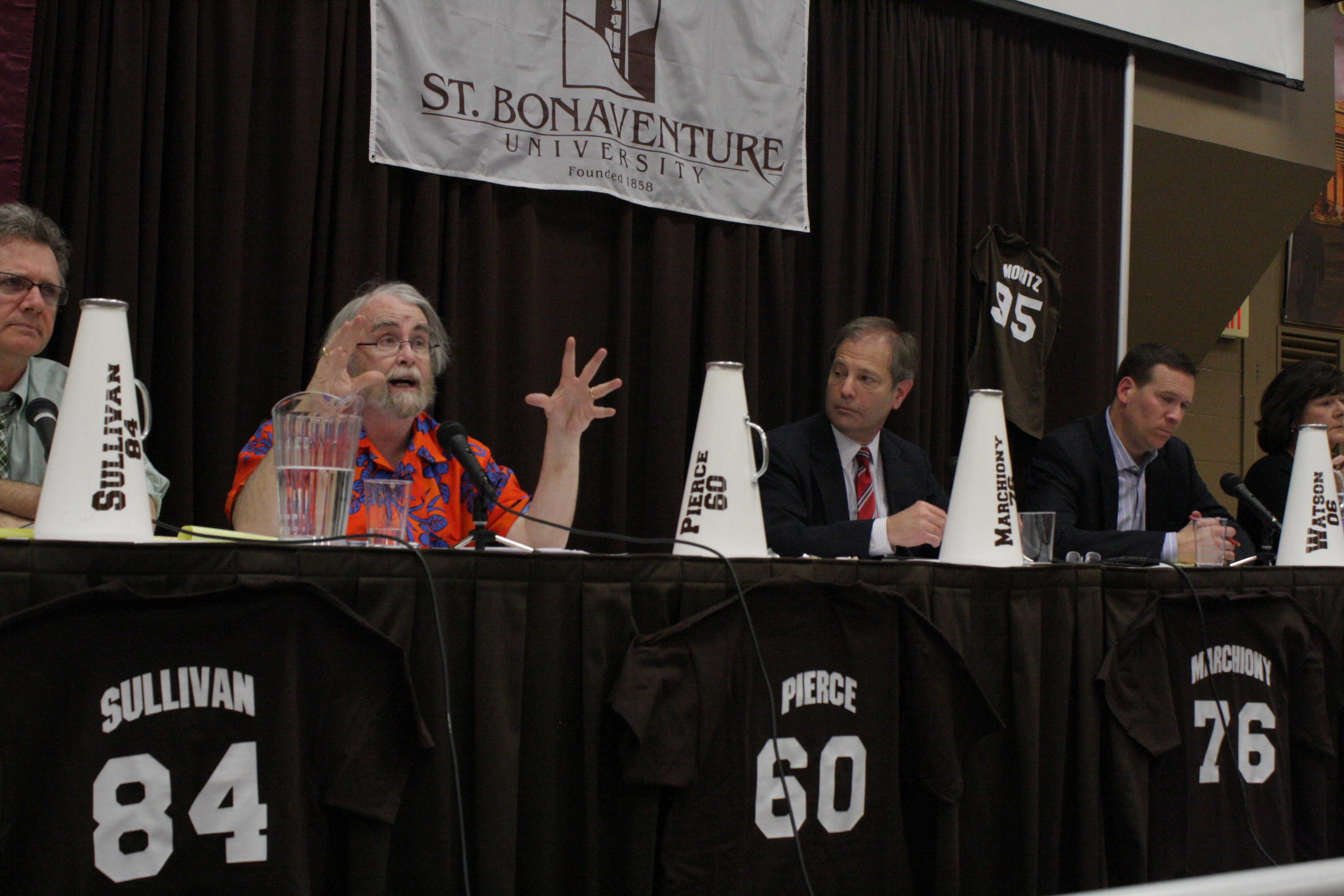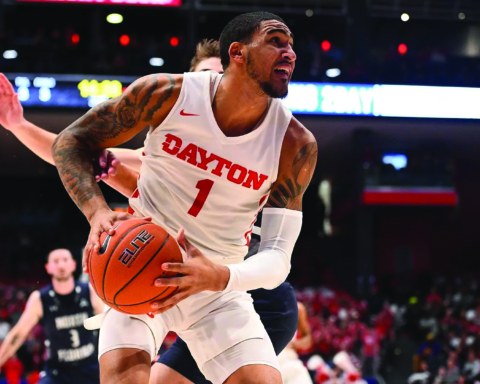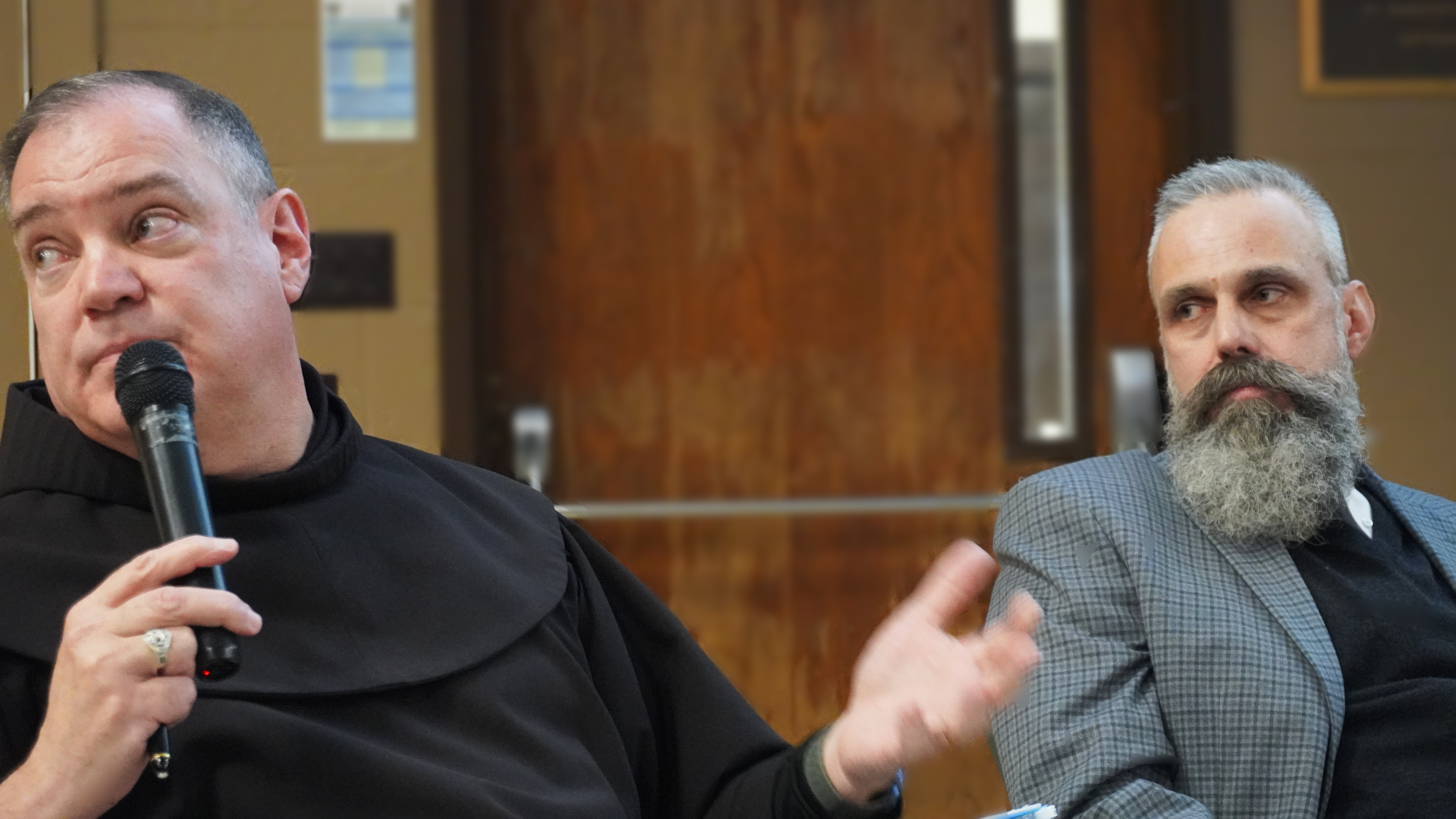By Taylor Nigrelli
Sports Assignment Editor
The Dick Joyce Sports Symposium was held Tuesday afternoon in the Dresser Auditorium of the Murphy Professional Building.
The event, named for the late Associated Press sportswriter and 1960 St. Bonaventure graduate, typically features a panel discussion of a pressing sport issue.
This year’s issue was the present and future state of the NCAA. The panel was made up of Buffalo News columnist Jerry Sullivan, Esquire and Grantland columnist Charles Pierce, Atlantic 10 commissioner Bernadette McGlade, and St. Bonaventure Athletic Director Steve Watson.
Jim Marchiony, ’76, associate athletic director at the University of Kansas, moderated the discussion.
The panelists discussed the issues plaguing college sports, ranging from conference realignment to the pay-to-play debate. Watson and McGlade offered their thoughts from the NCAA’s perspective, while Sullivan and Pierce offer their thoughts as critics of the system.
Each panelist was allowed to give a brief synopsis on their view on the current state of the NCAA to open the discussion. McGlade was the first to speak. She insinuated the NCAA is too important for it to be as ravaged by corruption as it’s been for the past few years.
“The NCAA is impactful,” McGlade said. “It touches thousands of people’s lives.”
McGlade then discussed what she believes the role of the NCAA should be.
“At the end of the day, the mission of the NCAA under a non-profit model is about and should be about the student-athletes,” McGlade said.
Sullivan was the next to speak. The longtime critic of college athletics wasted no time getting to his point. He bashed the NCAA for their corruption and their role in what he believes to be the over-commercialization of college sports.
“It seems like college games are on every night from September to March,” Sullivan said. “I love sports, but I don’t feel college sports are quite that important. More and more it’s starting to feel like this enterprise is about commerce and corruption.”
Sullivan later referred to major college football and basketball as a “de facto minor league system.”
Much like Sullivan, Pierce was brutal in his analysis of the NCAA’s current state. He even claimed a collapse of the association’s structure was imminent.
“The only questions remaining are where (the NCAA) will fall, on whom and how hard,” Pierce said. “The indications are that the reckoning is finally here. In its role as protector of a lucrative status quo, the NCAA is under assault from a number of different directions and the organization seems to be cracking under the pressure.”
Watson was next to speak. He discussed the A-10 conference realignment that both he and McGlade had to work through before the event moved on to actual discussion.
Marchiony asked each panelist multiple questions covering a variety of issues that the NCAA is currently facing. The discussion remained mostly civil save for one heated exchanged between McGlade and Pierce.
When discussing whether or not college players should be compensated for their work, McGlade used the athlete’s scholarships as an example of compensation. She was quickly cut off by Pierce, who claimed the idea of an athletic scholarship was “ridiculous.”
“A show of hands from the students in the room,” Pierce started as he looked to the crowd. “How many of you work a 40-hour-per-week job that requires you to travel across the country up to three times per week? That’s what student-athletes are forced to do.”
After the panelists discussed possible solutions to the litany of problems, Sullivan revealed what he wants to see occur.
“I don’t think things will change in my lifetime,” Sullivan said. “But before I die, I’d like to see one school step forward and say ‘We’re done, we can no longer be a part of this in good conscience. We don’t want your TV money.’”








